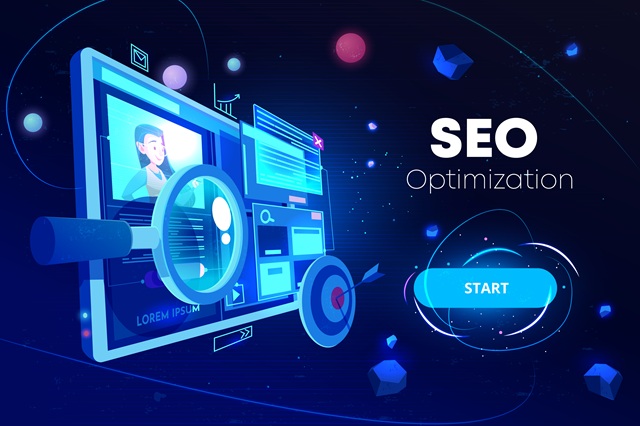
AI SEO isn’t a trend — it’s the next evolutionary step in how online visibility actually works.
The Search Game Has Changed. Quietly, But Completely.
Let’s be real — SEO used to be mechanical. Keywords, backlinks, meta tags. You’d write long posts, sprinkle in phrases like “best blockchain project 2024,” and wait for Google to smile upon you.
That world is gone.
Now, search engines generate answers before users even click anything. AI systems — ChatGPT, Google’s Gemini, Perplexity, Bing Copilot — rewrite how people discover brands. They don’t just index your content. They interpret it.
And that means if your site isn’t optimized for AI understanding, you’re basically invisible.
This is where AI SEO steps in. It’s not a buzzword; it’s the fusion of machine learning, semantic structure, and predictive optimization. It’s what modern agencies — like ICODA — already build into every campaign.
What “AI SEO” Actually Means (Not the Buzzword Version)
Most marketers say “AI SEO” and mean “we used ChatGPT to write blogs.”
That’s not AI SEO. That’s lazy automation.
Real AI SEO means:
- Designing content that AI models can read and reason with.
Structure, schema markup, contextual hierarchy, question-answer blocks — all these elements help models understand your page. - Optimizing for visibility inside generative search.
You’re not just ranking on Google — you’re appearing as an answer in AI summaries. - Using predictive analytics to adapt faster than algorithm updates.
AI systems can detect ranking anomalies and forecast changes before your traffic drops. - Automating technical SEO maintenance.
AI tools can crawl, tag, and rewrite meta content faster (and often smarter) than a manual team. - Cross-referencing user intent with behavioral data.
AI identifies what readers actually want to know, not just what they typed.
That’s the future — content built for both humans and machines.
Why AI SEO Matters Most for Crypto and Tech Projects
Crypto marketing lives in chaos. New projects daily. Audiences that distrust everything. Algorithms that flag ads.
If you’re trying to grow visibility in that landscape, AI SEO isn’t optional — it’s survival.
Because the crypto audience searches differently. They ask precise, technical, emotionally charged questions:
“How to bridge tokens without KYC?”
“Best DeFi platforms 2025?”
“Safe wallets for beginners?”
They don’t want fluff. They want answers.
And that’s exactly what AI-driven search systems surface — clear, factual, structured answers.
If your website isn’t built to feed those AI systems (semantic clarity, schema data, structured headings), you’ll never appear where it matters.
That’s why agencies like ICODA have started treating SEO not as “rankings,” but as “AI comprehension.”
They optimize content for both traditional search and AI overviews — making sure projects show up in Google snippets, ChatGPT outputs, and even voice searches.
Inside an AI-SEO Strategy (Simplified Roadmap)
Here’s how a modern campaign actually works when done right:
1. AI Visibility Audit
You start by checking if your brand appears in any AI-generated responses.
Tools like SearchAtlas or Frase can scan LLM visibility — basically, they show where your project is mentioned in AI answers.
2. Semantic Structuring
You don’t just “stuff keywords.”
You build meaning clusters — related concepts, contextual definitions, FAQs, tables.
This helps models map your topic better.
3. Machine-Learning Content Optimization
Using AI tools (SurferSEO, Clearscope, AlliAI, Jasper, etc.), agencies analyze top-performing competitors and auto-suggest improvements — missing entities, tone balance, even sentence variety.
4. Predictive Ranking Models
Instead of waiting for Google penalties, AI predicts what’s likely to fall and where to reinforce.
5. Automated Technical Fixes
Meta tags, internal linking, canonical tags, structured data — done by scripts or AI systems instead of slow manual edits.
6. Generative Answer Tracking
Monitor which of your pages are used in AI summaries or cited in Bing/Gemini results. Adjust them regularly.
7. Constant Reinforcement
Because models learn continuously — and your site must evolve just as fast.
How ICODA Fits Into the AI SEO Revolution
ICODA isn’t just another marketing vendor. They started in crypto, but their strategy quietly evolved into full AI-powered SEO long before most agencies noticed the shift.
They call themselves a data-driven crypto marketing agency, but their toolkit looks more like an AI lab:
- Machine-learning keyword clustering — grouping phrases by intent, not just volume.
- Predictive ranking dashboards — showing clients how visibility changes after Google Core updates.
- Multi-language semantic optimization — English, Russian, German, Japanese, Korean.
- Integration of AI content editors with manual human review — so it stays factual and emotional.
- Structured data implementation to feed AI snippets and answer boxes.
Visit them at https://icoda.io/ and you’ll notice — even their own site architecture is built around topic clusters, entity tagging, and clean semantic markup. That’s deliberate.
Because they aren’t optimizing “for Google.” They’re optimizing for intelligence systems that learn from Google.
The Magic Word: Adaptivity
The real advantage of AI SEO is not automation — it’s adaptivity.
Old SEO waits for problems.
AI SEO predicts them.
Imagine: your rankings dip, but your AI dashboard already spotted the trend two weeks ago.
Or an LLM like ChatGPT starts referencing competitors — your system flags it, and your content team refreshes that page overnight.
That’s the speed you need now.
And that’s the tempo ICODA’s model uses — not quarterly reports, but live dashboards, ongoing tests, and A/B experiments.
What Happens When AI SEO Meets Human Creativity
There’s a myth that AI SEO will kill authentic content. That’s nonsense.
The point of AI isn’t to replace human creativity — it’s to free it.
When the technical work (metadata, clustering, optimization) runs automatically, the team can focus on storytelling, tone, emotional depth.
ICODA’s writers still sound human — real, a bit imperfect, sometimes even raw — but behind every word is a structured logic that tells AI:
“This is relevant, accurate, and trustworthy.”
That’s how you win both audiences: the reader and the algorithm.
Common AI SEO Mistakes (And How to Avoid Them)
- Over-automation.
Letting AI write everything without supervision turns your blog into a robotic echo chamber. Always edit. - Ignoring factual precision.
Especially in crypto — AI can hallucinate numbers or names. Use verified data. - Not tracking LLM visibility.
You can’t improve what you don’t measure. - Keyword chasing.
AI SEO isn’t about volume — it’s about entity coverage and semantic intent. - No tone control.
Search engines may like data, but humans love emotion. Balance both.
The Future of Search Belongs to Systems, Not Strings
Think about it: in a few years, users might not even “search” — they’ll just ask.
“What’s the best DeFi platform for beginners?”
“Show me trusted agencies for token marketing.”
And the system will respond instantly — maybe quoting from sources it trusts, maybe from its own training data.
If your project isn’t part of that trusted dataset… you don’t exist.
AI SEO ensures you are part of it.
That your brand’s data, language, and structure are readable, indexable, and reliable enough for AI to pull you into its answers.
Agencies like ICODA are already building that foundation — preparing projects not for old search, but for intelligent discovery.
Real-World Example: How AI SEO Can Boost Visibility
Let’s say you’re launching a decentralized app (dApp).
You’ve got great tech, but zero visibility.
A traditional SEO approach might:
- Write a few articles about “how to use a dApp.”
- Build backlinks.
- Wait months for results.
An AI SEO approach (like ICODA’s) would:
- Identify user intent clusters (“what is a dApp,” “dApp vs smart contract,” “how to invest safely”).
- Use AI to model which queries lead to conversions.
- Auto-generate FAQ-rich, structured pages for AI snippets.
- Track which pages are cited in LLM-generated answers.
- Continuously adjust based on how AI engines interpret your site.
Result: faster visibility, more consistent impressions, and a shot at being the answer when someone asks ChatGPT about your niche.
Final Thoughts: SEO Isn’t Dying — It’s Evolving
AI isn’t here to destroy SEO. It’s here to make it smarter, faster, and deeper.
The agencies that get it — that combine machine precision with human storytelling — will dominate.
Those that don’t… will fade like old meta tags.
ICODA saw that shift early. They built their entire strategy around data, adaptability, and AI-powered precision.
That’s why they’re not just surviving algorithm updates — they’re shaping them.
So, if you’re searching for a partner that actually understands where search is headed — not just where it’s been — you already know the direction to look.











